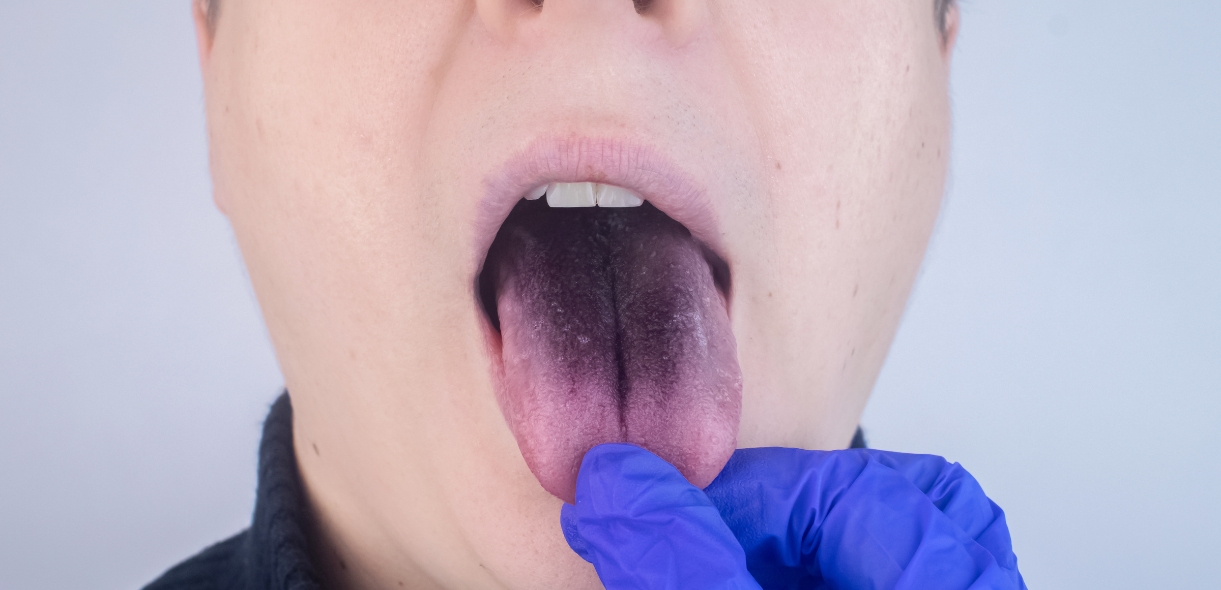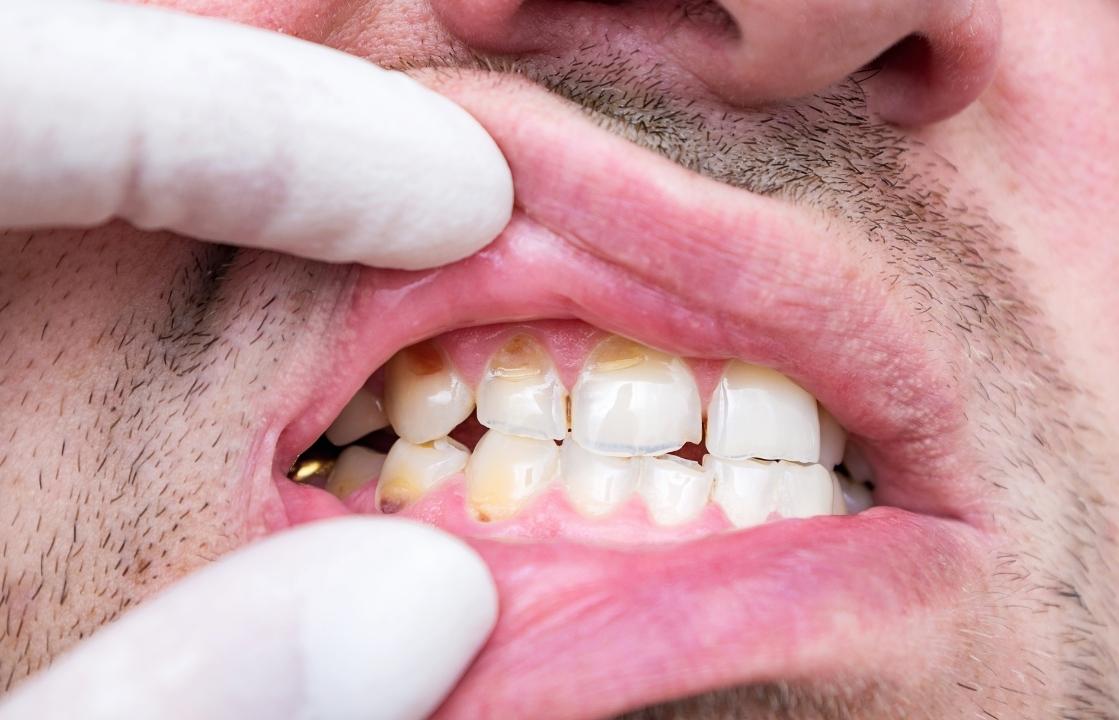$99 New Patient Special - Includes Exam and X-Rays.
10 Causes of Black Spots on Tongue: When Should You Worry?

By Dentist At Plum Creek Kyle
The human tongue is a fascinating muscle, responsible for taste, swallowing, and even speech. But what happens when you notice dark or black spots on your tongue? While the sight can be startling, it’s not always a cause for immediate alarm.
So, ditch the anxiety and join us on this journey to demystifying the mystery marks on your tongue. You might be surprised to learn that some causes are easily remedied, while others require a touch of professional assistance. Let’s get started!
10 Causes of Black Spots on Tongue
This article delves into ten potential causes of black spots on your tongue, helping you understand the underlying reasons and when to seek professional help from a trusted dentist.
1. Black Hairy Tongue: This common condition arises from a buildup of keratin (a protein) on the tongue’s papillae (small bumps). These elongated papillae trap food particles and bacteria, causing discoloration. While it may look alarming, black hairy tongue is harmless and usually regresses with good oral hygiene practices.
2. Oral Thrush: Caused by an overgrowth of the fungus Candida albicans, oral thrush manifests as white patches on the tongue, sometimes with underlying black spots. These spots arise from trapped food particles and dead skin cells accumulating within the fungal growth. Oral thrush typically affects infants and individuals with compromised immune systems.
3. Medication Stains: Certain medications, like iron supplements and bismuth-containing antacids, can interact with saliva and pigments in your food, leading to temporary black spots or discoloration on your tongue. These stains usually fade once the medication is discontinued.
4. Smoking and Tobacco Use: Smokers and tobacco users are more prone to pigmentation changes on the tongue, including black spots. This is due to the tar and nicotine present in tobacco, which can irritate the tongue and leave behind dark deposits. Quitting smoking or tobacco use is crucial for clearing these spots and improving overall oral health.
5. Dietary Factors: Certain foods and beverages, like blackberries, licorice, and coffee, can temporarily stain your tongue black. These stains are usually harmless and fade within a few hours. However, excessive consumption of dark-colored foods and beverages can contribute to chronic discoloration, especially with poor oral hygiene.
6. Injury and Trauma: Biting your tongue, tongue piercings, or accidental burns can cause localized bleeding and bruise-like black spots that eventually heal with proper care. However, prolonged pain or swelling could indicate an infection, requiring professional evaluation.
7. Canker Sores: These common mouth ulcers can appear as round, white sores with a red border. While not black, if a canker sore bleeds or develops a scab-like black crust, it could be mistaken for a dark spot. Canker sores usually heal within a week or two and don’t require special treatment.
8. Melanoma: In rare cases, black spots on the tongue can be a symptom of oral melanoma, a type of skin cancer. This typically appears as a flat, painless black patch that can bleed or ulcerate. If you notice any suspicious changes in the size, shape, or texture of a black spot on your tongue, especially alongside other symptoms like difficulty swallowing or tongue numbness, consult a dentist or doctor immediately.
9. Addison’s Disease: This adrenal gland disorder can cause hyperpigmentation throughout the body, including the tongue, leading to the appearance of black spots or patches. If you have other symptoms like fatigue, weight loss, and muscle weakness, along with black spots on your tongue, consult a doctor for diagnosis and treatment.
10. Peutz-Jeghers Syndrome: This rare genetic disorder can cause pigmented polyps to form throughout the digestive tract, including the mouth. These polyps can appear as brown or black spots on the tongue. While usually harmless, this syndrome requires medical monitoring and management due to the risk of developing certain cancers.
When to See a Dentist
While most causes of black spots on the tongue are harmless and resolve on their own, seeking professional help is crucial in certain situations:
- If the black spots are accompanied by pain, swelling, or difficulty swallowing.
- If the spots bleed or change in size, shape, or texture over time.
- If you have other symptoms like weight loss, fatigue, or fever.
- If you suspect oral cancer or any underlying medical condition.
The Importance of Regular Dental Checkups
Maintaining good oral hygiene is essential for preventing most cases of black spots on the tongue. Brushing your teeth twice daily, flossing regularly, and using a tongue scraper can help remove food particles and bacteria that contribute to discoloration. Regular dental checkups with your dentist in Kyle, TX allow for early detection and management of any underlying oral health issues that could manifest as black spots.
By understanding the causes of black spots on your tongue and practicing good oral hygiene, you can maintain a healthy mouth and address any concerns promptly. Remember, if you notice any worrying changes, don’t hesitate to consult your dentist for professional evaluation and guidance.







